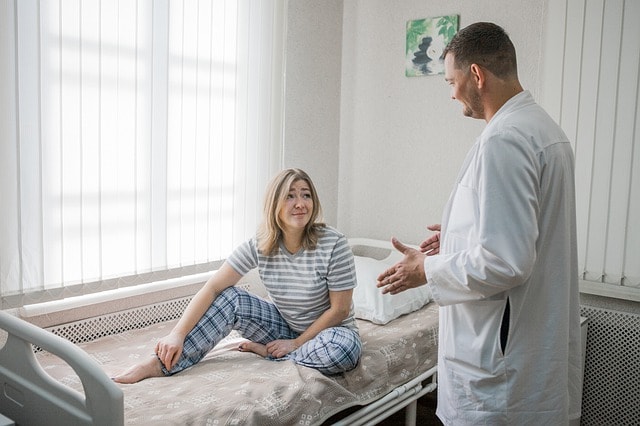Realizing you have an addiction is a (forgive the pun) sobering experience. It’s one that opens the door to hope and relief. But it also opens the door to overwhelming doubt and uncertainty. The first step in your recovery is realizing you have a problem. The second step is to find the right rehab center for you. Here are the different treatment centers you can choose from.
Rehab Center Necessities
Effective substance abuse treatment consists of a comprehensive collection of therapies. Studies show that a patient needs to engage in at least 90 days of treatment for long-term success. Treatment should include:
• Individual Counseling
Getting to the root of the drug or alcohol addiction goes a long way in achieving long-term recovery. Individual counseling helps patients peel back the layers of their addiction to address the root of the problem.
• Group Counseling
Group counseling offers several opportunities for patients in recovery. It offers insight without the pressure of being in the spotlight. Patients hear the real stories of their peers before, during, and after recovery. Learning from others’ experiences is an enlightening and rewarding part of therapy.
• Family Therapy
Addiction is a family disease. Family therapy is ideal for families who have been torn apart by the patient’s addiction. In this kind of therapy, families learn how addiction affects the patient’s brain. In addition, families work together to overcome problems and learn to have fun together again. It can rebuild, improve, and even empower the family unit.
• Life Coaching
Addiction is so powerful; patients commonly find that they don’t care about the most important things in their lives. Not only do they lose jobs, spouses, friends, and home, they also lose their sense of self. Life coaching in a rehab center helps patients rebuild their daily routines, communicate with the people they care about, and respect authority. In other words, they learn to live again.
• Co-occurring Disorder Treatment (if applicable)
Addiction commonly coexists with another mental health condition. In fact, other mental health conditions cause substance abuse. For that reason, it’s important to treat the other mental health condition to recover from the substance addiction.
Residential Rehab Center
Residential treatment centers are immersive, live-in facilities. Patients live with peers on the same journey to recovery from substance addiction. They practice healthy, daily routines while engaging in treatment. These commonly include time for treatment, reflection, and self-care. Patients eat and sleep on campus and engage in treatment throughout the day every day.
After the patient graduates from the treatment program, sober-living communities are a great way to transition from the program to the “outside” world. Strict rules regarding abstinence, curfews, chores, and employment encourage patients to ingrain their new, healthy habits.
Outpatient Rehab Center
Many people who need treatment don’t have the ability to leave family, work, or school for 90 days. In addition, many don’t have the health insurance coverage or resources for the bill. For these patients, an outpatient rehab center could be a better fit.
It’s important to note, however, that a deep-rooted, long-term addiction is much more likely to respond to residential treatment. In those cases, years of excessive abuse require a more structured treatment program before an outpatient center would have an effective outcome.
Treatment at an outpatient rehab center is convenient and effective for people with family obligations, careers, or school schedules. Treatment consists of the necessary components that we mentioned above. The difference is patients eat and sleep at home and attend therapy sessions multiple times per week.
Intensive Outpatient Treatment Center
Treatment at an intensive outpatient rehab center is a mix of treatment at residential and outpatient rehab. In other words, the patient doesn’t eat and sleep at the facility. Instead, the patient lives at home and attends treatment at a hospital, or similar setting, every day.
Although a residential rehab center is the most immersive treatment plan, the others are often just as effective. It’s critical that people with addictions, choose the rehab center that best suits their needs. Regardless of life circumstances, patients should consider residential treatment if they don’t have support at home.
Once you first realize you have an addiction, don’t delay in acting. Now that you know what kind of treatment is available, you can look for the right rehab center for you.
At A Brighter Start, we tailor a treatment plan that will serve your needs. We offer a comprehensive collection of therapies to help you recover from addiction for the rest of your years. Everyone deserves a healthy, happy life. Give yourself a fresh start and call us today.
Sources
[1] National Institute on Drug Abuse. “How Long Does Drug Addiction Treatment Usually Last?” National Institute on Drug Abuse, 3 June 2020, www.drugabuse.gov/publications/principles-drug-addiction-treatment-research-based-guide-third-edition/frequently-asked-questions/how-long-does-drug-addiction-treatment-usually-last.
[2] National Institute on Drug Abuse. “Types of Treatment Programs.” National Institute on Drug Abuse, 3 June 2020, www.drugabuse.gov/publications/principles-drug-addiction-treatment-research-based-guide-third-edition/drug-addiction-treatment-in-united-states/types-treatment-programs.
